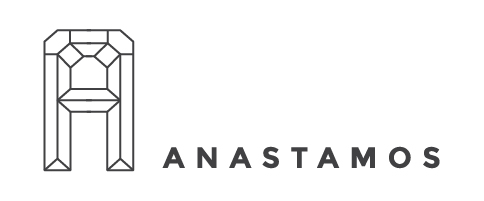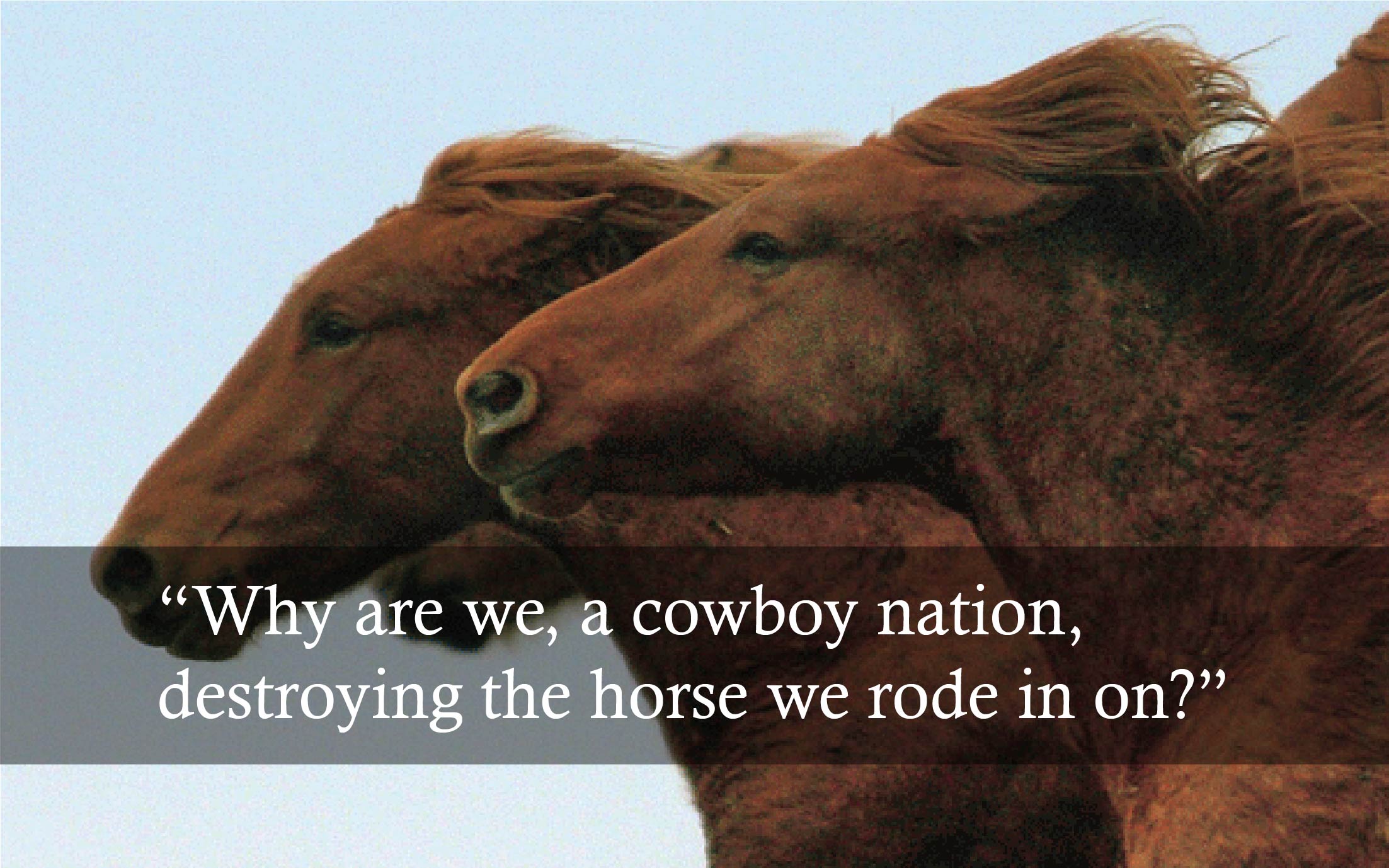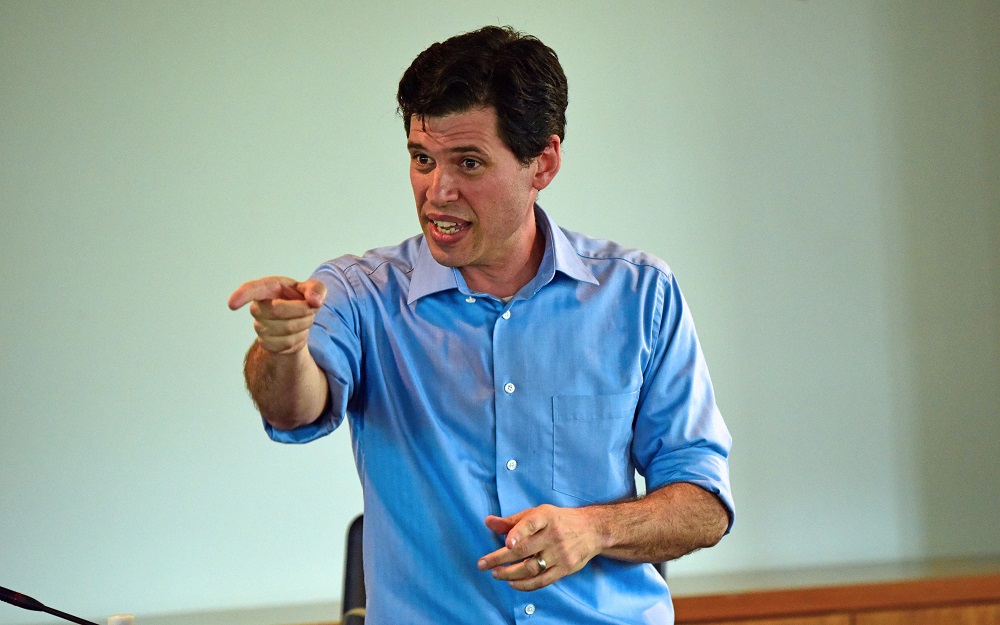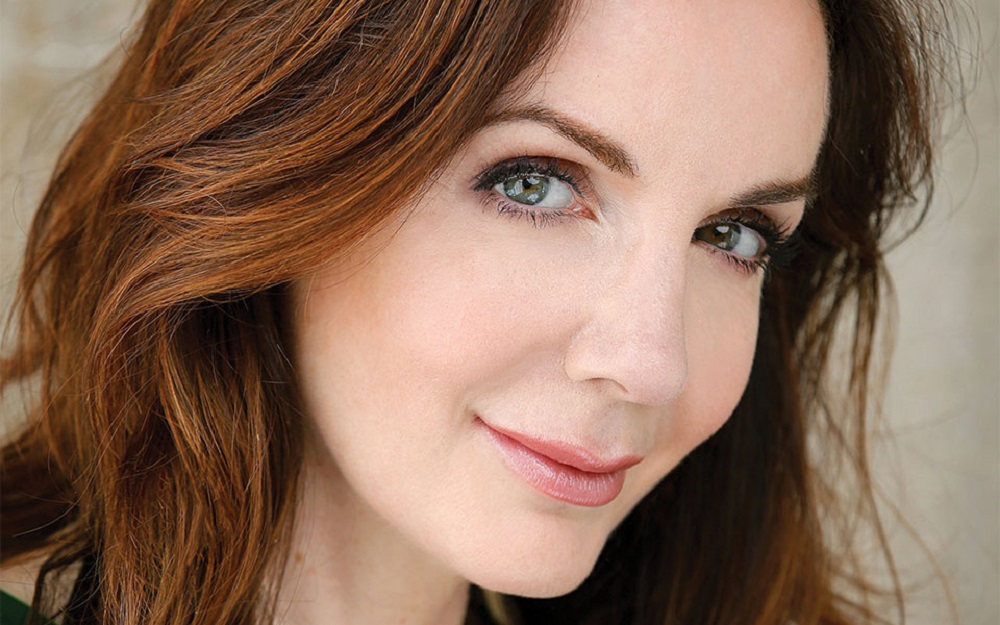
Dreaming the World in Translation: A Conversation with Hélène Cardona
As the world becomes increasingly and undeniably global, translation is more relevant than ever in reaching across borders to find both difference and common ground through art. Poet and translator Hélène Cardona spoke about her new bilingual poetry collection Life in Suspension / La Vie Suspendue with Alison Williams at the recent 2017 Association of Writers & Writing Programs Conference in Washington, DC. The two met up after Cardona’s panel entitled “Dreaming the World in Translation” to talk about Cardona’s ecumenical childhood, her development as an artist, and the importance of translation in creating ongoing dialogue around art, culture, and an empathetic international society.
Alison Williams: Can we start with a bit of your background? I have the sense that it’s inherent to your work.
Hélène Cardona: My upbringing is somewhat uniquely American because I’m an immigrant and the daughter of immigrants. I was born in Paris to a Greek mother and a Spanish father. My father was translating a lot of international poets and writers, like Stendhal’s Le Rouge et le Noir. There was so much censorship in Spain, everything was political, and there was no freedom of expression. He was about to be arrested for his writing, so, to escape Franco’s dictatorship, he fled to France. There he met my mother, who had left Greece to study law, and that’s how I came to be born in Paris. Soon after, we moved to Geneva, Switzerland, where my brother was born. My father worked for the UN and was involved politically, advocating for immigrants who were living in difficult conditions.
At home, French was the dominant language in the sense that we lived within the French world; but my dad spoke to us in Spanish and my mom spoke to us in Greek, so translation was a way of life. You don’t think of it, you just talk to one parent in one language, the other one in the other language, and that’s how life is. I grew up navigating cultures, steering my boat, and yet feeling very French somehow.
Williams: And of course, your name is Hélène.
Cardona: Yes, it’s a funny story. When I was born, they didn’t have a name for me, because they assumed I was going to be a boy. Finally, my mother gave me her mother’s name. They raised my brother and me with no gender difference. I wore dresses but played all kinds of sports, including soccer. I studied music and ballet at the Music Conservatory. I was also really good at math and physics. I was an equal with the boys everywhere. And it always felt strange when I saw differences in treatment between boys and girls. I felt very frustrated about it.
The French system is selection through math. So if you’re good at it, you’re encouraged to go into the scientific section in high school. I specialized in math, physics, and chemistry and also studied languages (English, Spanish, and Latin). But once you’re in the system, you’re—
Williams: You make your track.
Cardona: And they expect you to keep going. So at seventeen I was in medical school, and at nineteen I had a breakdown because it wasn’t for me. I thought I could do it all, but once you’re in medical school, you can’t. It’s all people do. Other interests are unheard of. After two years, I was burned out. I crashed. I had a deep depression, and I got out of med school. And my dad was so upset with me, like I was letting him down. When I hit the specialization the French system required, it was the beginning of the end, a slow death. I didn’t want to give up my artistic side (I played the piano and belonged to a dance company), but I couldn’t say no to getting into med school. It sounded good. I thought, I’ll be the kind of doctor who is a linguist, who does all these artistic things—but no, the regimen wouldn’t allow it.
Williams: It sounds like your work as an actress, writer, and translator was built out of this initial fragmentation or realization, where you had to explore and build this new part of yourself as an adult.
Cardona: I had to learn who I was the hard way. It was a dark time. And yet this challenging process of individuation was a great gift because it forced me to make choices. It propelled me out of Europe to the United States. I realized that this was my life and I had to live it. But it was painful. I had to start my life completely over. My mom was my only support.
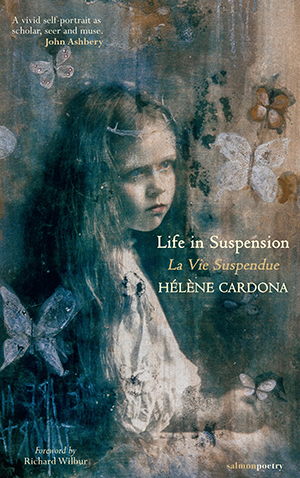 Williams: In reading Life in Suspension / La Vie Suspendue, what first attracted me was the mysticism, the connection with nature, and the duality of the language. But as I looked more deeply I saw these connections with your family and your history. In the beginning is your dedication to your mother, and then as I read through, I saw her as this continual thread in your poems. Did you write these poems specifically with these themes in mind, or did they come up organically?
Williams: In reading Life in Suspension / La Vie Suspendue, what first attracted me was the mysticism, the connection with nature, and the duality of the language. But as I looked more deeply I saw these connections with your family and your history. In the beginning is your dedication to your mother, and then as I read through, I saw her as this continual thread in your poems. Did you write these poems specifically with these themes in mind, or did they come up organically?
Cardona: A bit of both. My mother died twenty years ago. There was such grief because she was the only person who believed in me. When I was younger, my dad thought I was throwing my life away, leaving medical school for acting, but he meant well. And in recent years we’ve reconnected. But my mother always believed in me. Her death was a huge loss. As a result, I wrote a lot. I had notebooks filled with notes and poems that I didn’t know what to do with for a long time, until I put them in book form.
Williams: Did you consider yourself a poet as you were writing these notebooks throughout that period? Or was being a “poet” something that happened as you wrote the poetry as a mode of self-expression?
Cardona: I think I’ve always been a poet. I started writing poetry when I was ten. Surprisingly enough, even though my father was a poet, he never had a connection to anything I wrote for a long time. That changed after the publication of my first book.
Williams: How interesting.
Cardona: Really interesting. My mom, on the other hand, read everything I wrote. With my dad, when I was younger, it was always as if I was a strange animal he didn’t understand. But since the publication of my books, he has told me how much he loves my poetry, which really means a lot to me. We reconnected, and we’re close now. So close that I’m translating him, which has been deeply moving (see WLT, Nov. 2013, 15). He’s gone through a lot, too, and now we’re both in a different mind-set, which makes reconciliation possible.
My connection to nature always existed. I spent my whole childhood and early teenage years in Geneva and its surroundings, living in nature, in the mountains with my dog. In those days you could, as a child, get lost. It was safe. I’m not sure that people do that anymore, but I would disappear with my dog for hours, and it was total communion. I always had that connection to nature and to music. I would play the piano. I didn’t have the words for it at the time, but it was really meditation. When I was writing the notes, I didn’t know what I was going to do with them. It was a healing process, transcending grief and pain. The poetry comes from creating something that encapsulates that.
I didn’t know what I was going to do with them. It was a healing process, transcending grief and pain.
Williams: So these poems, then, were written over the course of these long years after your mother passed away?
Cardona: Yes, yes.
Williams: Because in my mind I was thinking, “So she sat down, she wrote a poem, and then she translated it.” And, of course, it’s not like that at all, because you’re a human being and you write out of your experience. So you had these poems that you wrote over a long period of time, and then you sifted through, composing and curating this collection. And then did you move into the translation?
Cardona: That’s right.
Williams: Were they in English or in French, or both?
Cardona: They were all in English because I write in English. It was my first publisher’s idea to present the book in a bilingual collection because they didn’t have any work in French and English. It was an unusual proposition, and it made me rework the texts, which was also a great gift. I did it for The Astonished Universe, Dreaming My Animal Selves, and Life in Suspension. I think it improved the poems.
Williams: In what way? What has been the change? Are you kind of translating yourself?
Cardona: I’m translating myself, yes. Obviously when I translate, I try to be very faithful. For what’s untranslatable, I work to find an equivalent. But I try to be faithful. It’s not about being literal. I try to be as literal as possible, but what has to be changed has to be changed. I’m not re-creating a different text. Sometimes one can do that with translations, and they become their own animal. I’m rendering the work into English, so it does transform, it does become a new text. But I’m not choosing to change things to fit my own personal view.
However, with my own work, I felt freer. And so in a couple of poems or lines here and there, I decided to say something else in French or in English. It was fine because it was my choice to do that. I was only accountable to myself.
Williams: I did notice these differences in the texts. As a person who is just beginning in translation myself, I was very curious as to how those choices were made. They mean different things in each language, which seems not the way of the work of translating in general.
Cardona: And this is because I preferred it one way in one language and the other way in the other. I felt that I could get away with it because it was my own. But I wouldn’t necessarily do it with someone else’s work.
Williams: You’ve done a lot of work as a translator. Would you say you think of yourself more as a translator or as a poet? Or as a poet who translates? Or does it really matter?
Cardona: It doesn’t matter. I’m a poet who translates. And an actress as well. They are different hats I wear. If I’m writing poetry, I’m writing poetry; if I’m translating, I’m translating. If I’m performing in a movie or recording voices for a movie, I’m just doing that. They are different aspects of me that get to be expressed at different times, or maybe sometimes at the same time.
Williams: As an artist . . .
Cardona: Yes, as an artist. When you have more than one interest and don’t specialize in only one from the outset, your path is a bit slower until everything comes together. I’ve spent my life doing all these different things and feel I’m in the best place I’ve ever been. Everything takes time. There are no shortcuts. I’m more at peace with that now.
There was also so much financial struggle, having to provide for myself. I’ve spent all these hours that add up to days and years working just to support myself, not necessarily in artistic fields. But those experiences have enriched me, because that’s what life required. All the different jobs where I met all kinds of people.
Williams: Which makes the work, at the end of the day, more tangible and present. You’re in it and living it, and not just theorizing or philosophizing but speaking from your own true experience. This must also inform your translation, understanding other people, having empathy and passion for them.
Cardona: Exactly. Empathy for other cultures, and people.
Williams: This brings me to the epigraphs in your book. There are a number of them. I was thinking about the idea of translation as conversation with other poets, with other cultures. Is that what’s happening with those writers that you refer to?
Cardona: Yes, all these poets and writers, whom I love and connect with so deeply, express exactly how I feel. We are kindred spirits. So I incorporate them via epigraphs. I am both paying homage to them and enriching my poem thanks to this ongoing conversation.
When you understand and know other cultures, you don’t fear the other. There is no other. We should be shepherds of the Earth.
Williams: You also did the translation work with Walt Whitman’s war writings. I felt a lot of symmetry with Whitman in your poetry. Do these opportunities with the translation work you do come from you pursuing the work you’re interested in, or do they come more spontaneously?
Cardona: For Whitman, I was approached by Christopher Merrill at Iowa’s International Writing Program. Whitman’s war writings had never been translated before into French or Arabic. This was a great opportunity because these texts (poems, letters, and prose) resonate so much with the current climate. Whitman worked as a nurse during the Civil War, tending to wounded soldiers from both sides, Confederate and Union. It was so touching and moving to translate his work. At times it made me cry.
It’s a timely reminder that we humans have a very short-term memory. If a war hasn’t occurred fairly recently, a country is ready to send its people to battle again. I could visualize the horrors as Whitman described the amputations, the damage inflicted on these young men. When one is young, one feels fearless and invincible, and this pattern repeats with every generation. It made me wonder what it’s going to take for humanity to transcend that and for us to be able to live together without having to steal another country’s resources.
It’s a question of evolution. Everyone should have the right to a decent life. Those extremes in terms of wealth—between the 1 percent who control everything and the rest of us—don’t serve humanity.
Translation is necessary to know oneself—to know where one comes from. Every language is a key into the psyche of its people.
Williams: I want to get to this idea, then, of translation as a political act.
Cardona: It is a political act.
Williams: Its nature is in being able to take the words from one culture and move them into the language that can be understood in another.
Cardona: When you understand and know other cultures, you don’t fear the other. There is no other. We are all humans inhabiting this planet, with our differences. We have more in common than not. We should be shepherds of the Earth. Translation is necessary to know oneself—to know where one comes from. Every language is a key into the psyche of its people. There’s no need to be antagonistic toward people just because we’re unfamiliar with their culture or the language they speak. This dehumanization of the other is a very scary thing. Pitting people against one another is counterproductive. Through translation, we bring cultures together, we create bridges. Becoming familiar with another culture transcends otherness. We are many and diverse.
February 2017
This interview by Anastamos Editor-in-Chief Alison Williams originally appeared in the May 2017 edition of World Literature Today.
Check out Hélène Cardona’s translation of Maram Al-Masri’s poetry in our inaugural issue, here.
